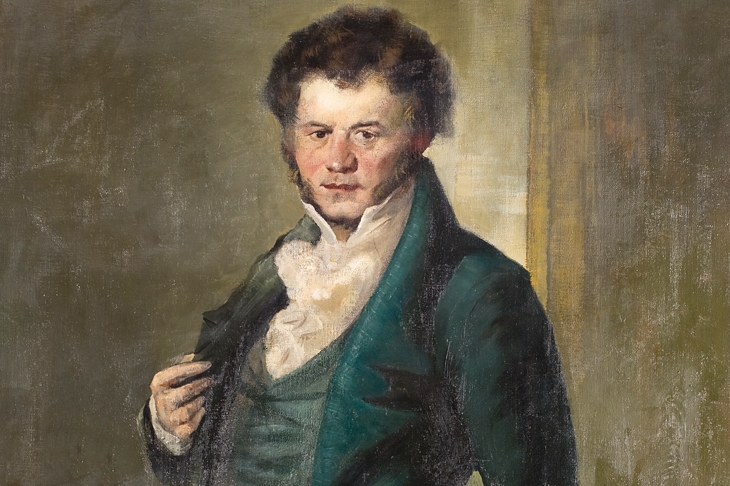Boyd Tonkin is superbly qualified to compile this volume. As literary editor of the Independent, he revived that newspaper’s foreign fiction prize, first won by Orhan Pamuk and his translator Victoria Holbrook. Translators are routinely undervalued. As with stage-lighting technicians, one is apt consciously to notice only glaring blunders; so it is good to know that the Independent’s prize is shared between author and translator.
I nevertheless approached this book with some scepticism. I couldn’t quite see the point of it. If one has read a novel already, what would one gain from a three-page essay? If not, surely a discussion that describes the book and reveals the plot would be a terrible spoiler, ruining the ‘narrative greed’ which is one of the driving pleasures of reading.
I am still not quite sure who will buy this book; but anyone who does is undoubtedly in for a treat. It is not just the breadth of Tonkin’s cultural knowledge which is immense, though there are not many editors who can write sentences such as:
The 1973 translation by the diplomat-scholar Sir Cecil Parrott is authoritative; however, Paul Selver’s first English translation from 1930 lends a beguiling, music-hall mischief to its period patter.
It is, however, the range of Tonkin’s inclusive, infectious, though never uncritical, enthusiasm that is truly admirable. The novels sweep across continents and centuries; Tonkin’s appreciation is always fresh, unforced and illuminating.
Of course, every reader will instantly draw up a list of classics he or she thinks should have been included: Arthur Waley’s version of Monkey, perhaps; Torquemada, Man of Straw, Oblomov, The Violent Land, or whatever. (My own most heartfelt wail would be for Miklós Bánffy’s Transylvanian trilogy. And if one is looking to praise the most astonishingly virtuosic translations, Gilbert Adair’s version of Perec’s La Disparition surely deserves at least a footnote: like the original, A Void brilliantly avoids ever using the letter ‘e’.) But such complaints are only part of the fun; and what we have here are riches indeed.
The essays on each of the 100 novels are luminously lapidary: admirably succinct, they miraculously avoid ever becoming reductive. This is partly because of Tonkin’s own predilections. He values works that do not short-circuit the complexities of human existence: ‘where there are humans,
there is ambivalence, doubt, confusion and delusion’; great novelists ‘mine the contradictions in characters’; ‘through its joyous multiplicity, this novel seems to side with the forces of prodigality and pluralism’.
His own descriptions of the essential character of each novel admirably escape the dead hand of the SparkNotes school of criticism. Every GCSE student wants to know what each character is ‘really’ like, and what the novel is ‘really’ about, to pin down the Nabokovian butterflies of fiction in set essay form. Tonkin keeps the original, thrilling flicker of creative ambivalence alive: his descriptions typically open rather than close discussion. Stendhal’s Julian Sorel regularly ‘backslides into
sincerity, candour and even innocence. You might say that he’s masquerading as an imposter.’ Discuss.
Tonkin’s essays are anything but formulaic: if he does have a constantly used trick, it lies in threading long strings of adjectives or verbs: ‘skittish, scurrilous but humane’; ‘fast-moving, episodic, compressed and imagistic’; ‘crazy, learned, reckless and pun-stuffed’; ‘comic, high-spirited, but with a deep melancholia’. Tellingly, the adjectives or verbs often pull in different directions — not so much sewing up a conclusion as opening a new seam of inquiry.
Many of the terms of praise Tonkin applies to his chosen novelists and their translators could equally be turned back upon him: ‘hums with joyous energy’; ‘with a big-hearted, broad-minded relish for…oddities and quiddities’; ‘delights, exhilarates, even entertains’; ‘displaying a forensic emotional intelligence…’
He finds the humanity inherent even in the most brutally modernistic novels, and the seriousness that can underlie apparent playfulness. He delights in experimentation, but is fully aware of its dangers — of becoming ‘some sort of airless, disembodied experiment in the pulverisation of narrative and character’. He can find the ‘thread of sheer fun’ running through a modern novel’s tiresome ‘trickery’. And as a reader, one usually only wants to expand upon, rather than disagree with, his judgments. (He does not, for example, quite bring out the vein of black comedy in Halldór Laxness’s Independent People — set in a bleak Icelandic farm where the sheep seem to drop maggots from every orifice,
children play with sheep bones, and an implement for removing ear wax is a treasured heirloom.)
Best of all, though, Tonkin whets rather than blunts a reader’s narrative greed for novels as yet unread. I have just embarked, with gratitude, upon Junichiro Tanizaki’s The Makioka Sisters. And I have been inspired to re-read many others. If I started by wondering who would enjoy The 100 Best Novels in Translation, I ended by wondering who would not.






Comments